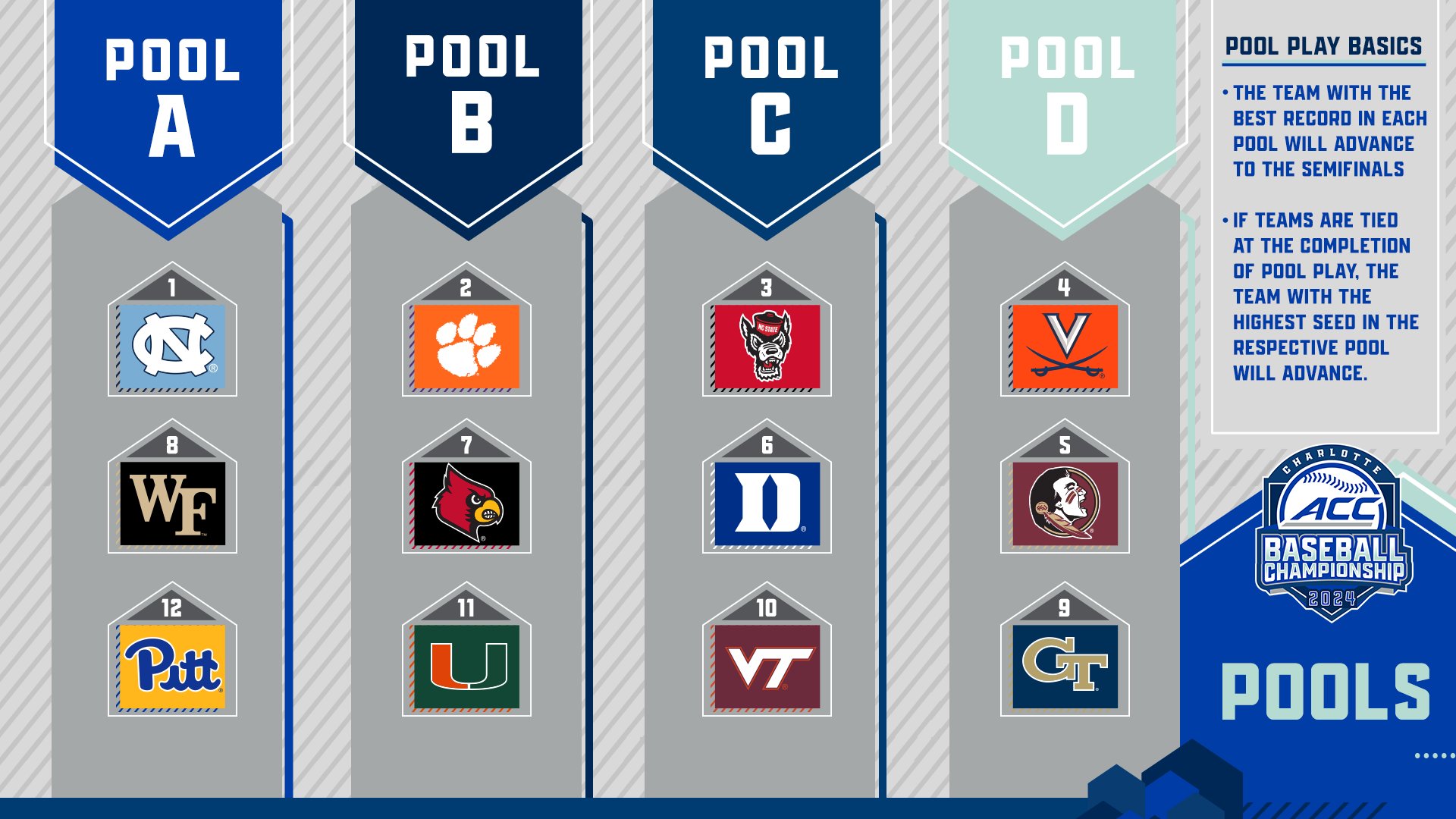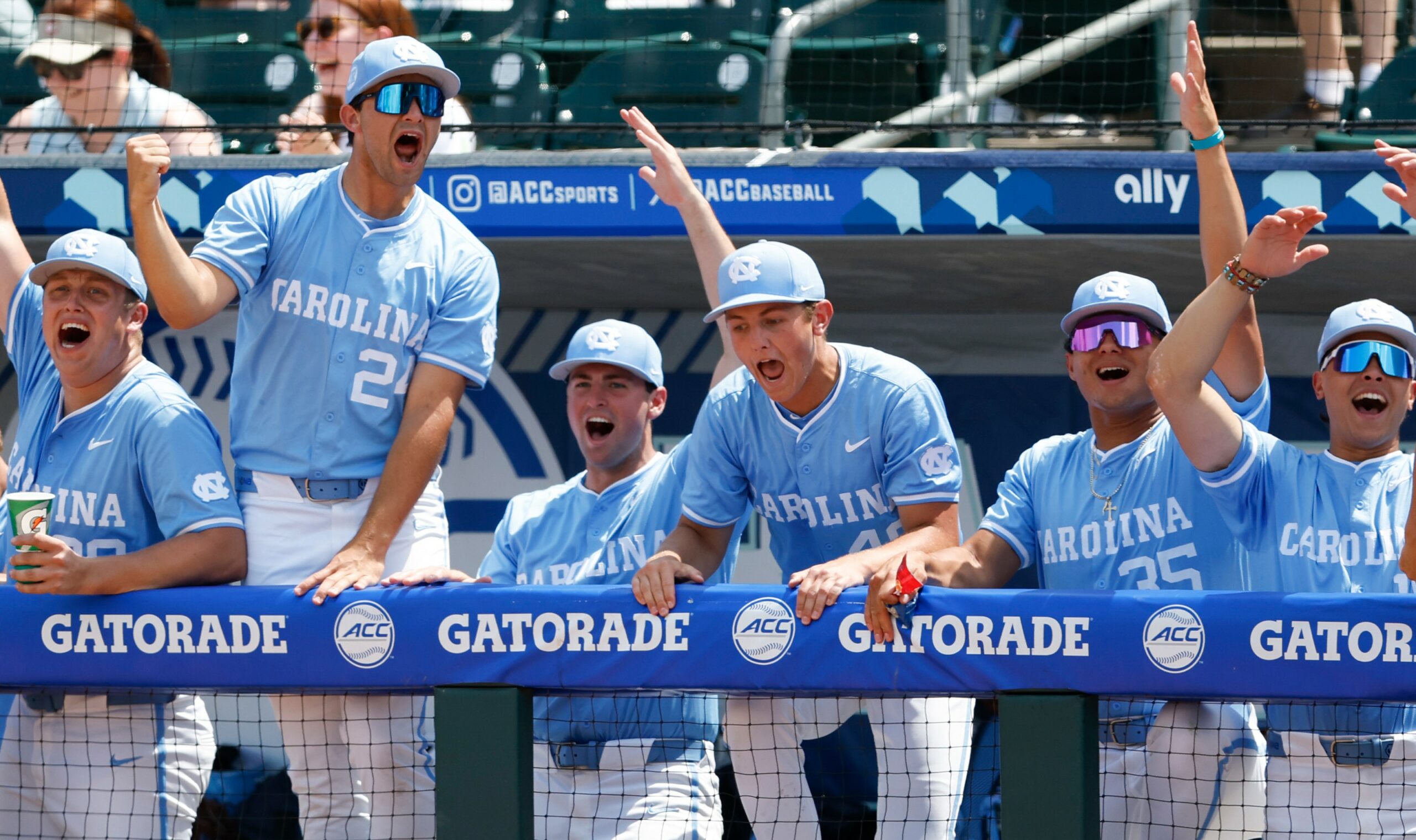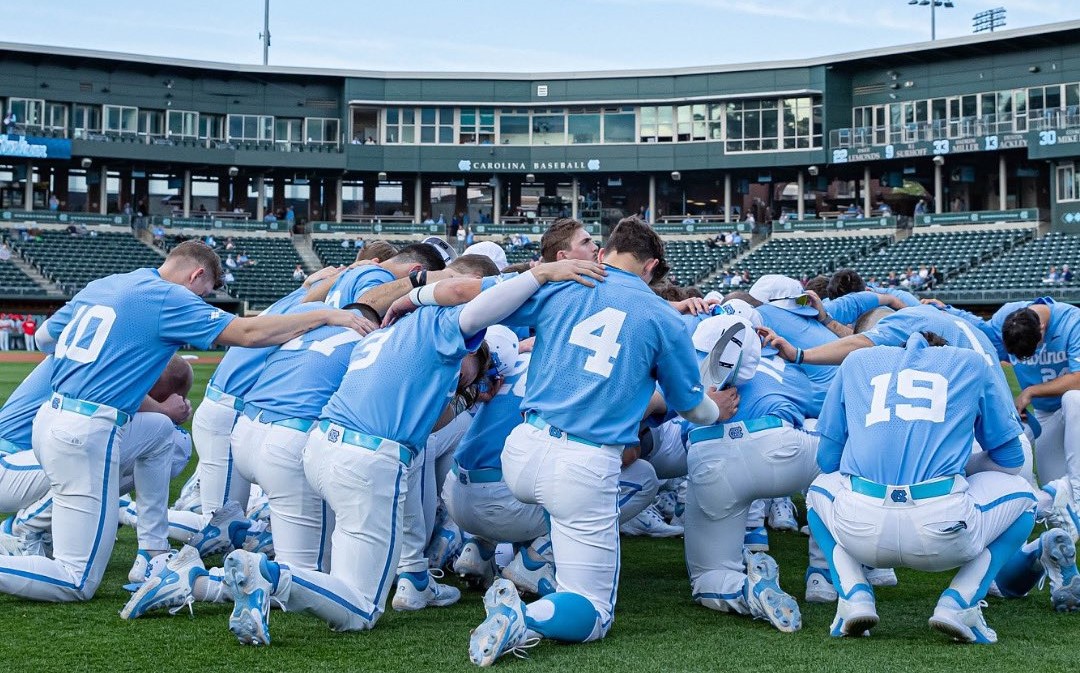Postseason college baseball is far different from other competitions. While sports like basketball, football and lacrosse each use single-elimination formats for their conference and NCAA tournaments, baseball uses a mixture of pool play and double elimination. Several of the major conferences use different formats for their tournaments, and the ACC is no different. In recent years the conference has gone to a pool play system. Although the system has been criticized, it will be used once again in 2024.
Here’s how that system works:
Initial Pool Play
The top 12 of the 14 total teams in the ACC regular season standings qualify for the tournament. This year, Notre Dame and Boston College were the odd teams out. The remaining teams are sorted into four pools, with the top four teams each serving as a de facto “No. 1 seed” in their pool. Carolina won the ACC regular-season title and is the No. 1 overall seed. The Tar Heels will be in Pool A with No. 8 Wake Forest and No. 12 Pittsburgh.

Image via ACC
The three teams in each pool will play each other in a round-robin style. After these three games, the team with the best record advances to the semifinals. Should two (or three) teams tie for the best record, the tiebreaker goes to the team with the higher seed, which places a heavy incentive on regular season performance. For example, if the Tar Heels lost to Wake Forest and beat Pittsburgh, but Pittsburgh beat Wake Forest, every Pool A team would finish 1-1 and Carolina – the highest seed – would advance.
Semifinals and Finals
The semifinals and final of the tournament are played in a basic single-elimination format. The winner of Pool A will play the winner of Pool D, and the winner of Pool B will play the winner of Pool C. The winners of the semifinals will play the conference championship the following day, with the winner earning an automatic berth into the NCAA Tournament.
Carolina will face Wake Forest on Friday night at 7 p.m. for a spot in the conference semifinals.
Chapelboro.com does not charge subscription fees, and you can directly support our efforts in local journalism here. Want more of what you see on Chapelboro? Let us bring free local news and community information to you by signing up for our newsletter.
Related Stories
‹

UNC Baseball Rides Big Inning to Blowout Win in ACC Championship GameThe Diamond Heels scored eight runs in the bottom of the fifth inning and crushed No. 5 seed Clemson 14-4 in the ACC Championship Game Sunday afternoon in Durham. The win clinches UNC’s ninth ACC Tournament title, second under fifth-year head coach Scott Forbes and third in the last six tournaments. 𝐂𝐎𝐍𝐅𝐄𝐑𝐄𝐍𝐂𝐄 𝐂𝐎𝐍𝐐𝐔𝐄𝐑𝐄𝐃 🏆 We're […]

UNC Baseball Uses Late Rally to Beat Florida State in ACC SemifinalsThe Diamond Heels scored two runs in the top of the ninth inning on their way to a 7-5 victory against No. 2 seed Florida State in the ACC Tournament semifinals Saturday in Durham. UNC will face No. 5 Clemson in the championship game Sunday at 12 p.m. 𝐇𝐄𝐄𝐋𝐒 𝐆𝐎 𝐌𝐀𝐑𝐂𝐇𝐈𝐍𝐆 We're on to the […]

Late Rally Helps UNC Baseball Beat Boston College, Advance to ACC SemifinalsThe Diamond Heels scored five runs in the bottom of the seventh inning to erase a 2-0 deficit against No. 14 seed Boston College and win 7-2 to advance to the ACC Tournament semifinals. Carolina will face No. 2 seed Florida State Saturday at 5 p.m. Cardiac Carolina is back baby! Win 1️⃣ of the […]

UNC Baseball in the ACC Championship: How to Watch, Cord-Cutting Options and Start TimeThe Diamond Heels will play in the ACC Tournament at Durham Bulls Athletic Park in downtown Durham this week. Carolina is the No. 3 seed in the field and will face No. 5 Clemson in the championship game Sunday. UNC is seeking its first tournament title since 2022. The tournament’s full bracket can be found […]

UNC Baseball Drops 12-Inning Thriller to Wake Forest in ACC TournamentWake Forest’s Nick Kurtz delivered the game-tying hit with the Demon Deacons down to their last strike in the ninth, then hit the go-ahead two-run home run in the top of the 12th to send the Diamond Heels to a 9-5 loss in the ACC Tournament on Friday night. UNC is eliminated from the tournament. […]

UNC Baseball in the 2024 ACC Tournament: How to Watch, Cord-Cutting Options and Start TimeThe Diamond Heels will look to win their second ACC Tournament in three seasons this week in Charlotte. Carolina is the No. 1 seed in the field, having won the league’s regular-season title, and will take on Wake Forest Friday night for a spot in the conference semifinals. For more information on the format of […]

UNC Baseball Blasts Past Pittsburgh in ACC Tournament OpenerThe Diamond Heels hit six home runs – including four in the first inning alone – on their way to a 12-2 win against Pittsburgh in the ACC Tournament on Thursday. Carolina will play Wake Forest on Friday for a spot in the conference semifinals. CAROLINA VICTORY!!!#GoHeels x @wellsfargo pic.twitter.com/3wtvN9KGzE — Carolina Baseball (@DiamondHeels) May […]

UNC Baseball Falls to Clemson in ACC SemifinalsThe Diamond Heels’ ACC Tournament repeat hopes were washed away in the Durham drizzle on Saturday afternoon, as Carolina fell to Clemson 10-4 in the ACC semifinals. It’s UNC’s fourth loss to Clemson in the span of nine days. The Tigers jumped in front immediately, striking for five runs in the bottom of the first […]

UNC Baseball Rolls Past Virginia Into ACC SemifinalsThe Diamond Heels’ ACC title defense will last a little longer. Carolina put forth a dominant effort Thursday afternoon against No. 2 overall seed Virginia, defeating the Cavaliers 10-2 in the final game of pool play to advance to the conference semifinals on Saturday. Pool B belongs to Carolina!!#GoHeels x @WellsFargo pic.twitter.com/lWkT5eAiiM — Carolina Baseball […]

Koh's Notebook: Bull City BonanzaArt Chansky’s Sports Notebook is presented by The Casual Pint. YOUR place for delicious pub food paired with local beer. Choose among 35 rotating taps and 200+ beers in the cooler. Durham Bulls Athletic Park is a perfect spot for the ACC Baseball Tournament. Just as Greensboro established itself as Tournament Town for basketball season, […]
›












